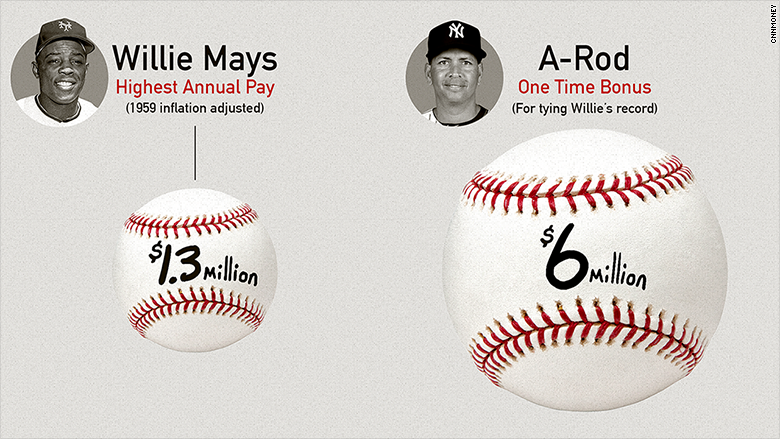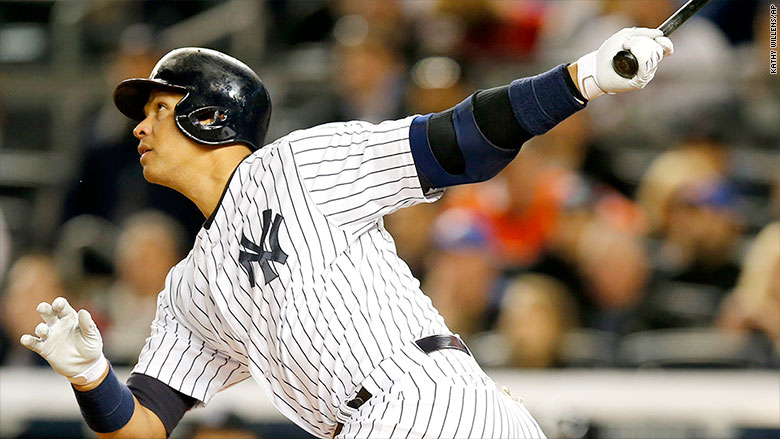
Serial steroids user Alex Rodriguez is one home run away from matching Willie Mays' career total of 660. If he does, he's eligible for a $6 million payout.
To put the size of that bonus in context, it's about three times what Mays earned over the course of his 22-year playing career. Even after adjusting Mays' pay for inflation, the bonus is more than four times his top annual salary, which was $1.3 million in 1959.
But the fact that A-Rod has admitted to using performance enhancing drugs almost surely means there will be a fight over whether he'll ever get to cash that check.
The Yankees won't comment on the bonus on the record. But numerous reports say the team doesn't think it has to pay given A-Rod's steroid use.
Related: A-Rod - Best paid pariah in the history of sports?
A-Rod might not fight that decision -- it probably wouldn't look very good if he did given his disciplinary record.
But it's not really up to A-Rod. The final word on the $6 million bonus will come from the player's union, which is extremely committed to ensuring player contracts are paid in full.

If the union does let A-Rod take a pay cut, that could force other players to do the same. It's a trend that would ultimately render baseball contracts meaningless.
The union won't comment on its plans, but it's fought player pay cuts in the past. In fact, it fought another case that involved A-Rod back in 2003.
At the time, A-Rod wanted to be traded from the last-place Texas Rangers to the Red Sox in 2003. But the only way Boston would take him was if he agreed to reduce the value of his 10-year, $252 million contract.
Related: $325 million deal may be riskiest contract in sports
Rodriguez was willing to cut his pay, but the union blocked the trade, ruling he could not negotiate changes that would lower his contract's value.
If the Yankees do refuse to pay, "I would be shocked if the union doesn't file a grievance," said Gene Orza, the union's former chief counsel who blocked the deal between Rodriguez and the Red Sox ten years ago.
A-Rod has earned $378 million so far in his career, excluding bonuses and the $42 million he'll earn in the next two seasons.
But that doesn't diminish his right to the bonus money, said Orza, or mean that he should give it up without a fight.

